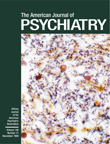This volume represents the proceedings of a NATO Advance Science Institute held in Port de Bourgenay, France, in June 1996. It is volume 291 of NATO Series A: Life Sciences.
Here we have the tape-recorded experiences and opinions of 85 clinical and research psychologists (with an added sprinkling of lawyers, anthropologists, pharmacologists, and psychiatrists) who met in a French retreat for 11 days to debate the question of adult memory for childhood sexual trauma. Each day a major lecturer held forth, followed by a formal discussant, ending in a general question-and-answer period.
In 1980, the problem of childhood sexual trauma was brought into the open. It is widespread and not rare. The big question is, Can trauma be forgotten and then remembered many years later? There is no consensus on this.
Some ask whether a memory can be repressed, and, if it can, is it repressed consciously or unconsciously, in Freudian terminology. All agree that there is evidence that a memory of trauma from childhood may pop up suddenly, but not as often as the numerous court actions would reflect.
Memories before age 3 or 4 years are not given much credence. The unreliability of all memory for emotionally charged events is stressed. Can the hormones mobilized by high emotion blot out memory traces, or does high emotion deepen the traces? There is no consensus on this.
Women claim childhood sexual trauma more often than men do. The reasons are only conjectural. In regard to men, there are the numerous cases of posttraumatic stress disorder (PTSD) related to war experiences, with terribly intrusive memories, some real and some dream-like and uncertain. The hypothesized link between PTSD and childhood sexual trauma is not convincing.
Attention is called to inappropriate digging up of traumatic memories by ambitious or biased therapists. This is usually considered unethical, causing possible harm to the patient and untold family problems when there is confrontation between perpetrator and child, adolescent, or remembering adult victim.
For childhood sexual trauma to be considered, the perpetrator needs usually to be at least 10 years older than the child.
In general, the facilitating of memory by leading questions, hypnosis, or Amytal interviews is condemned. However, some researchers find instances where such measures are advisable. If there is any doubt, obtaining informed consent is always important.
Therapists who wish to work with childhood sexual trauma cases need very special and intensive training. Even conscientious and unbiased therapists can find themselves being sued or under indictment. Naturally, documentation of physical trauma or other validation of childhood sexual trauma will help the cause.
Neutral ways of questioning children have been formulated and recommended by several organizations researching childhood sexual trauma. In Israel, the children are not permitted to testify. Specially trained “youth experts” question the child and report to the court. The judicial systems in Scandinavian, Dutch, and French courts are contrasted with those in North America, where we are said to use an adversary system to “settle” childhood sexual trauma cases. In Europe, there is more of an effort to find “the truth,” and the judge is the one who has the responsibility to find it. That is called an “inquisitorial” system.
From beginning to end, in the 11 days, the items I mention here were discussed and belabored in all possible aspects every day. The reader draws his or her own conclusions or none. Of course, this book should be read carefully by any would-be therapist for a purported childhood sexual trauma patient. You may still wonder, however, how childhood sexual trauma can be long forgotten and then remembered suddenly by an adult.

